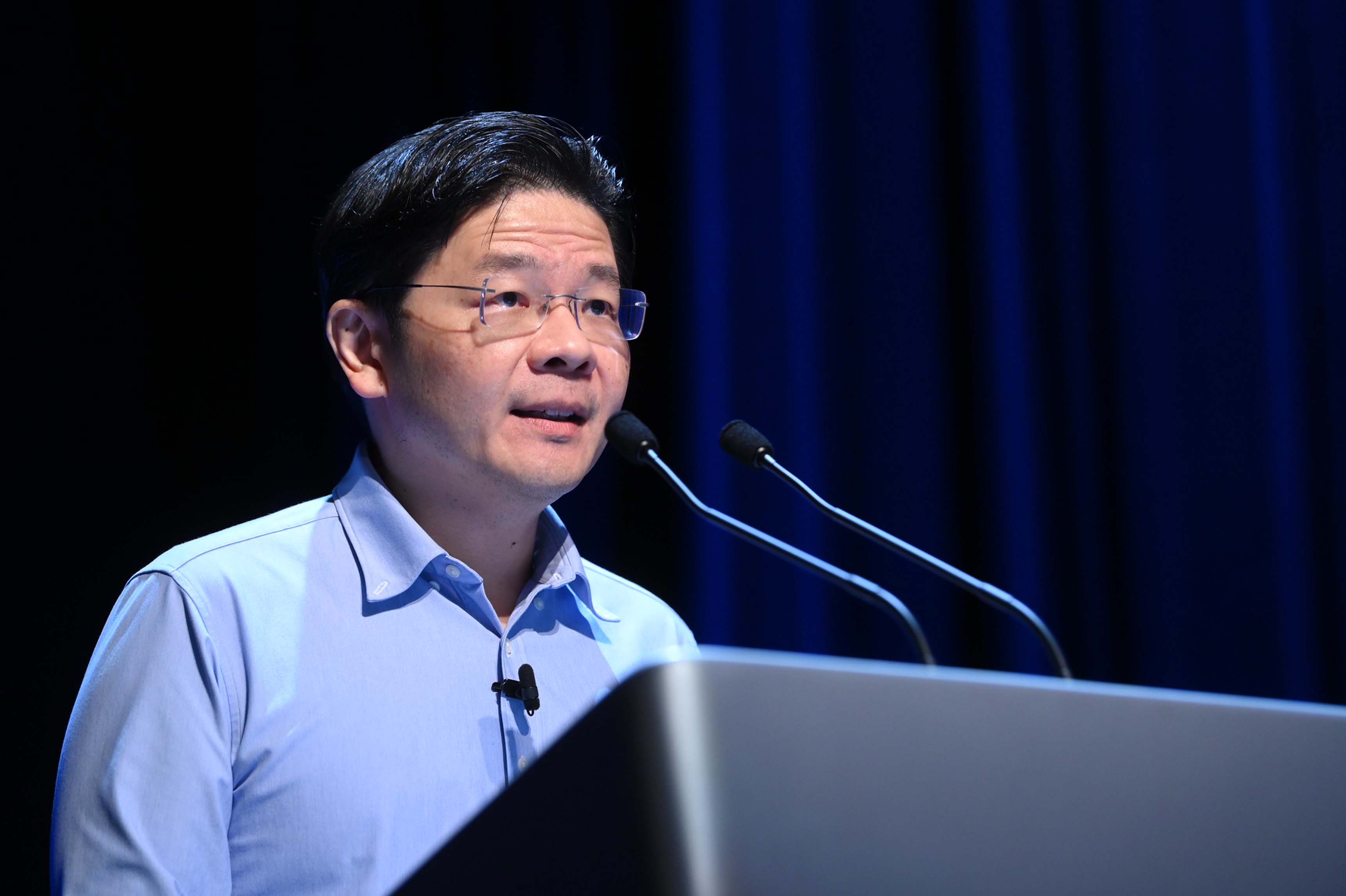Policies like GRC system still needed as S'pore is not immune to racial discrimination: Lawrence Wong
Sign up now: Get ST's newsletters delivered to your inbox

The GRC system is to ensure at least a minimum number of minority legislators in Parliament, said Finance Minister Lawrence Wong at an IPS forum on June 25, 2021.
PHOTO: INSTITUTE OF POLICY STUDIES
Follow topic:
SINGAPORE - Singapore has not arrived at a state where its people are free of racial discrimination, and it is for this reason that policies like the group representation constituency (GRC) system are still in place.
Making these points on Friday (June 25) during a forum on race and racism, Finance Minister Lawrence Wong said recent events of racist behaviour have shown that Singapore has some way to go to move beyond race.
The GRC scheme was implemented in 1988 to enshrine minority representation in Parliament. Under the scheme, each slate of election candidates for a GRC must have one or more candidates who are non-Chinese.
Noting that some believe GRCs are not necessary as Singaporeans can be trusted to vote for the best candidates, regardless of race, Mr Wong pointed to the United States, where courts have to intervene to ensure there is diverse representation in their legislatures.
In Singapore, there is racially integrated - rather than segregated - housing, and no constituencies with built-in majorities of Indian and Malays.
"We have the GRC system to ensure at least a minimum number of minority legislators in Parliament," he said.
Mr Wong said he respects the views of Singaporeans who believe the country is ready to move beyond the GRC system, adding that nobody would be more pleased than past and present People's Action Party leaders with such an outcome.
"But we are not yet totally immune to the siren calls of exclusive racial and cultural identities. Neither have we reached a 'post-racial' state. Surely, recent events have, if anything, confirmed our caution," he said, referring to a spate of racist incidents that have made headlines here over the past two months.
Mr Wong said Singapore's founders knew the country needed deliberate policies and carefully thought out safeguards to ensure minorities would be protected.
These efforts also had to ensure the majority would not abuse its dominance, and that bigots and chauvinists from any race would be constrained and curbed.
The nation's forefathers took difficult and drastic steps to achieve this, he noted.
For instance, they refused to confine their political base only to the majority race and took firm action against all chauvinists of all varieties, including invoking the Internal Security Act against Chinese chauvinists.
They also made English - a neutral language common to all - Singapore's working language, the language of government and the main medium of instruction in schools.
Mr Wong pointed out that the founding leaders had changed electoral rules to guarantee that minorities would always be represented in Parliament, and that no party could prevail by narrowly appealing to any specific race and religion.
He also held up how they amended the Constitution to create a Presidential Council for Minority Rights, chaired by the Chief Justice, with the power to reject any law passed by Parliament that infringed on the rights of minorities.
Efforts like these have helped Singapore to be one of the few places in the world where people of different races and faiths have lived peacefully and closely together for more than half a century, said Mr Wong.
But he also noted that policies are not set in stone, and that the Government will continue to update policies on race and in other areas that help to strengthen racial harmony in Singapore.
"We are not perfect and there's still much work to be done," he said.

